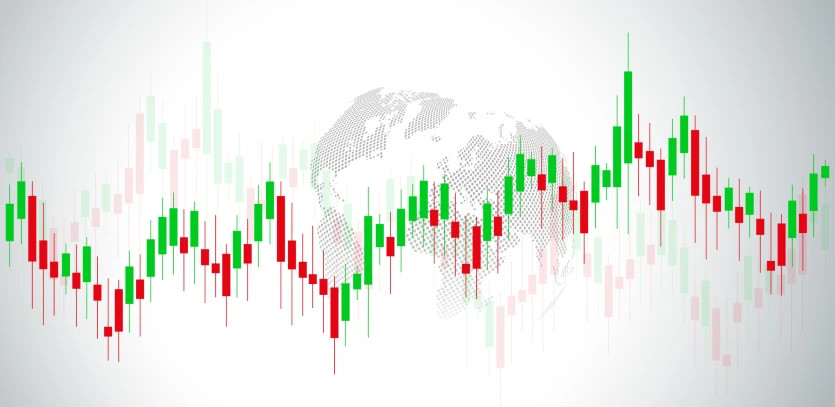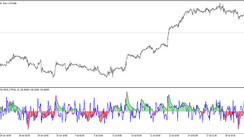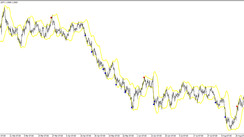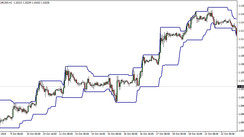According to the World Health Organization (WHO), pneumonia of unknown cause was first detected in Wuhan, China, on 31 December 2019. On 11 February 2020, the WHO announced the official name for the novel coronavirus as COVID-19.
By mid-April 2020, coronavirus cases reached nearly two million worldwide, with the United States, Spain, Italy, and France worst affected.
New York has also been particularly overwhelmed, both in terms of total deaths and stress on the health care system.
Countries such as Hong Kong and South Korea, however, have implemented strict controls over infected people, swiftly containing the spread, according to data.
In the interest of public health, the WHO and the Centers for Disease Control and Prevention (CDC) issued recommendations leading to calls for social distancing and lockdown protocol.
Personal finances of millions have been affected as a result, consequently impacting the global economy.
The Dow Jones Industrial Average (DJI) and the NASDAQ Composite Index (IXIC) experienced significant declines in response to the crisis, a market crash. Not only has Wall Street suffered, but small businesses also feel the strain.
Although it’s impossible to avoid risk entirely when engaging with the markets, recognising the following five common mistakes should help defend a stock portfolio, and any short-term positions, during the COVID-19 pandemic.
Liquidating Positions
Declining portfolios have seen many long-term investors feel the urge to liquidate positions until the crisis subsides.
If you invest for the long-term, a knee-jerk reaction in an attempt to avoid losses can affect overall returns. It’s generally cheaper to remain in the market as opposed to selling out and then buying back in at a higher price.
Prudent investors and short-term speculators will continue to look for opportunities. Stand out stocks expected to profit from the coronavirus outbreak such as grocery stores that provide essential supplies are likely on the watchlists of many. Companies like Slack and Zoom also stand to profit from providing teleconferencing and collaboration tools.
Obsessing Over Your Account Balance
Investors and short-term traders can become discouraged when overly obsessed with their portfolio’s equity balance. Thinking long-term is key.
This can be particularly difficult when short-term trading, though working with a back-tested trading plan helps, as does thinking in probabilities.
Disasters such as the Great Depression, the 9/11 Attacks, and the Great Recession of 2008-2009 all took a toll on financial markets, yet recovered into positive territory.
Only Buying Income/Dividend Stocks
As COVID-19 continues to impact economies across the globe, conserving cash is the number one priority for most companies right now. This is seeing a temporary halt on stock buybacks along with dividend cuts, consequently having a direct impact on those reliant on dividend income.
For example, Atlanta-based asset management firm Invesco reported a drop in earnings on April 23, leading to a dividend cut of 50%. Link Group’s UK dividend monitor also shows 45 percent of UK companies have scrapped payments, worth £28.2bn.
Therefore, investing based on previously paid dividend percentages, when many companies are attempting to support their balance sheets and conserve cash, maybe a mistake.
Consumer discretionary stocks, for the most part, are considered a higher risk in current market conditions.
For instance, on April 15, Estee Lauder, a global leader in prestige beauty products, announced it would be suspending its dividend for the next quarter. Tourism and Airline travel companies are also suffering.
Consumer staples, on the other hand, such as grocery stores, are generally considered lower risk.
Taking Your Eyes Off the Market
Financial markets are increasingly volatile due to the COVID-19 pandemic. News events develop rapidly, causing explosive fluctuations in the stock market.
For short-term traders, it’s important to keep an eye on the markets and any real-time news developments. Market sentiment is not always rational, however. Therefore, ensure a well-placed protective stop-loss order is set on all short-term trades.
When a notable event appears on the economic calendar, and unemployment report, or trade balance data, for example, it may be prudent to consider booking, or at least protecting, profits, in any stock you feel might be affected.
Buying/Selling Every Breakout
In light of increased volatility, short-term traders and investors may look to take advantage of breakout setups.
A breakout occurs when price movement clears a critical chart level, such as support and resistance.
As most are aware, breakouts can fail, causing bull and bear traps. Short-term traders, in particular, have to adjust their breakout approach to accommodate volatility.
For example, some will take into consideration the average daily range and scale strategies outward. Other points to be aware of is time – markets are more reactive 20 or so minutes following the open.
Breakouts tend to be seen during this time. Additionally, consider setting firm, realistic, take-profit targets. Also, having a maximum stop in place is recommended. Don’t allow yourself to take huge losses.
Opportunity
It’s uncertain when the economies of the world will return to normality.
US President Donald Trump has blamed China for the virus and concerns have been raised around the world whether China should have revealed the seriousness of the virus before they did.
Trump argued American officials would have been able to act faster if China’s government had fully shared information concerning the outbreak. How all of these concerns will affect the balance of power is unknown.
COVID-19, although a challenging time, presents an opportunity for stock traders and investors alike. Recognising and adapting to increased volatility is key.
About the Author
FPMarkets
FP Markets combines ECN pricing and award-winning execution speed with institutional-grade liquidity to provide traders consistently tighter spreads and unparalleled trading conditions. Start trading with FPMarkets now!
The information contained in this material is intended for general advice only. It does not take into account your investment objectives, financial situation or particular needs. FP Markets has made every effort to ensure the accuracy of the information as at the date of publication. FP Markets does not give any warranty or representation as to the material. Examples included in this material are for illustrative purposes only. To the extent permitted by law, FP Markets and its employees shall not be liable for any loss or damage arising in any way (including by way of negligence) from or in connection with any information provided in or omitted from this material. Features of the FP Markets products including applicable fees and charges are outlined in the Product Disclosure Statements available from FP Markets website, www.fpmarkets.com and should be considered before deciding to deal in those products. Derivatives can be risky; losses can exceed your initial payment. FP Markets recommends that you seek independent advice. First Prudential Markets Pty Ltd trading as FP Markets ABN 16 112 600 281, Australian Financial Services License Number 286354.





